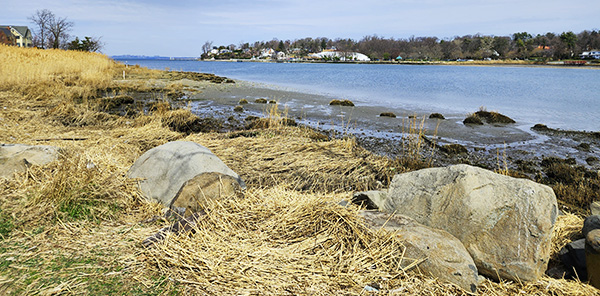
We’re about two-thirds of the way through New York’s state legislative session. Here’s where our top environmental priorities stand.
Somewhere between the first state budget deadline extension and the second, Governor Kathy Hochul acquiesced. Her push to change the way New York State accounts for methane emissions met such resistance from legislators and environmental groups, the governor opted not to pursue it.
Those accounting methods, established in 2019 through the Climate Leadership and Community Protection Act and more accurate than those used by most states, marked New York as a national leader in measuring and reducing greenhouse gas emissions. Thankfully, the methodology remains intact . . . for now. And still the budget negotiations continue, complicated by other policy roadblocks. Whenever a budget deal is reached, it will be the latest since 2010.
We’ll be watching and keeping you updated on how the final budget affects New York’s environment. We’re curious to see whether it reflects the spending priorities in the one-house budgets released in March by the Senate and the Assembly. Both called for a $600 million investment in the Clean Water Infrastructure Act, and both sought more funding for the Environmental Protection Fund than the $400 million proposed by Gov. Hochul.
Both also included language that would authorize Suffolk County to establish a Water Restoration Fund for wastewater infrastructure improvements, which would be financed by a 1/8% increase in county sales tax and would permit the county to consolidate its existing 27 sewer districts. If that’s included in the final budget, Suffolk will then need to pass a charter law, which voters will then have the opportunity to support in a referendum.
We also have been monitoring the progress of a number of bills as they make their way through the legislative process. Here are some of our top priorities this session:
RESILIENCY – preparing our communities for climate change impacts by harnessing the power of nature-based solutions and empowering New Yorkers to make decisions that reduce their risk
Living Shorelines: S5186 directs the Department of Environmental Conservation “to adopt policies and regulations to establish nature-based solutions as the preferred alternative for stabilizing tidal shorelines to enhance resilience and ecological restoration.” In other words, it would prioritize green solutions–like Save the Sound’s Big Rock Wetland Restoration Project in Queens–over grey ones. STATUS: Passed Senate; delivered to Assembly.
Flood Disclosure: Back in December, Gov. Hochul signed a law amending the Real Property Act, requiring residential leases to disclose the flood history and flood risk of a leased property to renters, and to make tenants aware of the availability of flood insurance. This bill protects homebuyers as well by requiring sellers to disclose any history of flooding on property condition disclosure statements. STATUS: In committee (Judiciary).
Resilient NY Revolving Loan Program & Resilient NY Revolving Loan Fund: Provides low- or no-interest loans to municipalities, non-profit organizations, and individual property owners for hazard mitigation and resilience projects to help prepare for a future of stronger storms. Funding would come from FEMA’s Safeguarding Tomorrow through Ongoing Risk Mitigation (STORM) Act. STATUS: In committee (Veterans, Homeland Security, and Military Affairs)
CLIMATE, ENERGY, & ENVIRONMENTAL JUSTICE – ensuring a fairer, healthier future by combatting the emissions that drive climate change and empowering communities to fight back against unjust environmental burdens
All-Electric Building Act: Requires all new buildings to be constructed without fossil fuel combustion systems or appliances, starting in 2024 for those under seven stories and by 2027 for larger buildings. STATUS: In committee (Energy and Telecommunications)
Energy Efficiency, Equity, and Jobs Act: Allows the state to fund fixing underlying conditions that stop the implementation of energy efficient measures, such as removing toxic mold, lead, and asbestos from housing. It also requires that low-income and communities of color receive funding for energy efficiency job training. STATUS: In committee (Energy and Telecommunications)
NY HEAT (Home Energy Affordability Transition): Eliminates billions of dollars in subsidies for new gas hookups, enables neighborhood-scale building decarbonization, and ensures energy affordability for low- and moderate-income families. STATUS: In committee (Energy and Telecommunications)
WASTE REDUCTION – improving the health of New Yorkers and New York’s environment by reducing and better managing our trash
Packaging Reduction and Recycling Infrastructure Act: As detailed in the bill’s official justification: “The average New Yorker creates nearly five pounds of trash every day, which means our state produces approximately 15 million tons of waste each year . . . This waste primarily goes to landfills and incinerators, but can often end up in our water, natural habitats, and municipal spaces.” Many municipalities struggle with the cost of collecting and processing recyclable items. This bill would require companies to reduce consumer packaging, reduce toxins used in packaging materials, support municipal recycling programs, and bear responsibility for the end-of-life solutions for its product packaging. STATUS: In committee (Finance)
ENVIRONMENTAL CONSERVATION – strengthening protections for the fragile places and wildlife that make our state great
Class C Streams: Reclassifies Class C waterways – which currently allow for fisheries and non-contact activities – as “streams,” affording them protection from “undesirable activities” under the DEC’s Protection of Waters Regulatory Program. STATUS: In committee (Finance)
There are just eight weeks of session to go and much business to get done for New York’s environment and people. We’ll reach out again soon with more updates on these bills, and how your voices can help make sure they get over the finish line before June 8.
